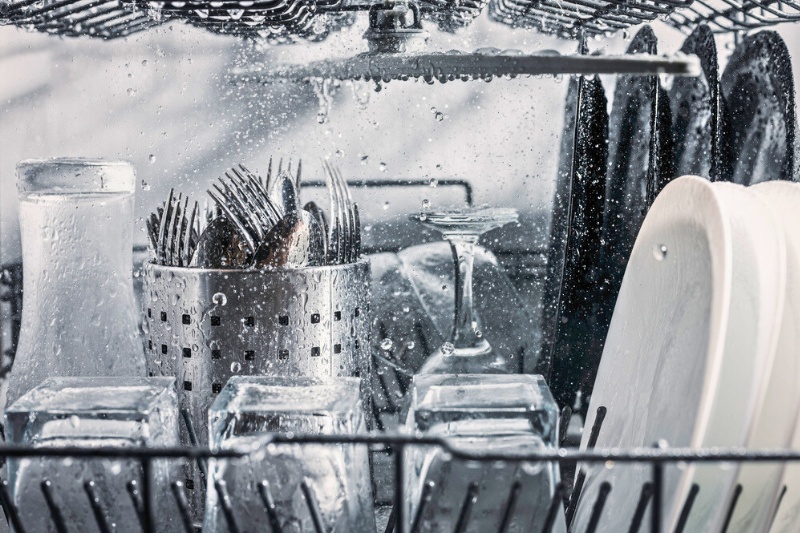In today’s eco-conscious world, particularly here in the UK, where energy costs are a significant concern, knowing how an appliance uses its energy is paramount.
So, does a dishwasher heat its own water? Yes, in most cases, a dishwasher in the UK will heat its own water. However, it is possible to hook some dishwashers up to a hot water supply and use this instead, but most people stick to cold water (see your user manual before you try this).
Keep on reading to find out why a dishwasher heats its own water.
Why Does a Dishwasher Heat Its Own Water?
A dishwasher heats its own water for several reasons. These include:
1. To ensure cleaning efficiency
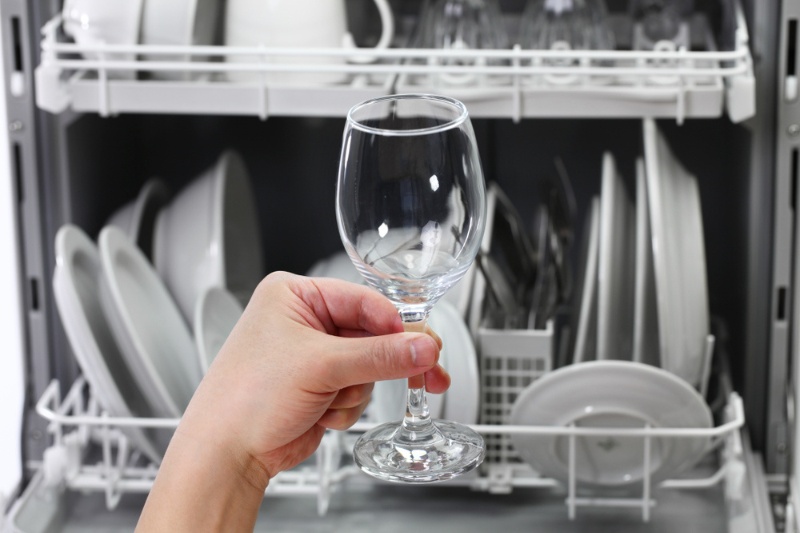
Dishwashers are designed to reach specific temperatures so that they can dissolve detergent and remove greasy deposits and food particles from dishes. A dishwasher heats its own water so that it can achieve such results.
The higher the water temperature, the more effective it is at removing the grime and germs on cutlery and plates.
Many types of bacteria are killed at a temperature of 65°C or more, which is a temperature a dishwasher can get up to. A consequence of cleaning dishes at such a high temperature is that they appear clean and are hygienic.
2. To be energy efficient
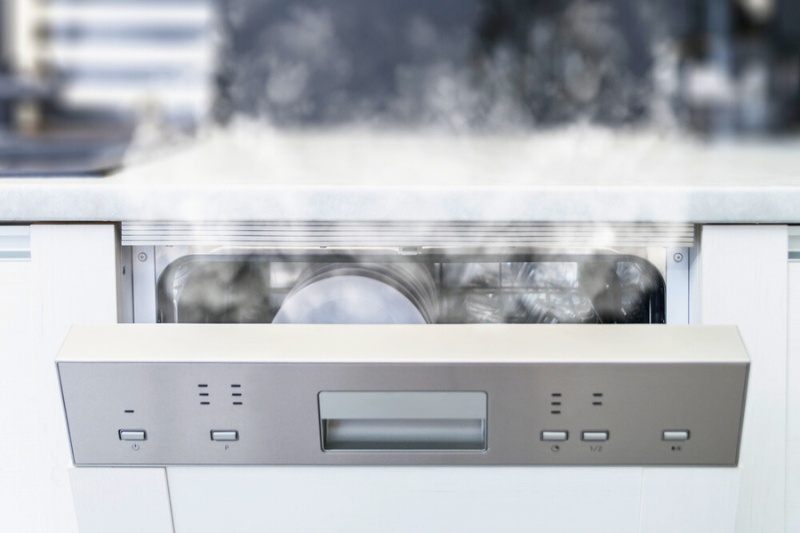
While heating water consumes energy, appliances like modern dishwashers are engineered to heat the water in question more efficiently. This is why these appliances heat their own water rather than be supplied with already-heated water.
To put this in a different way, if you hook your dishwasher up to a hot water supply, it might not work out as energy efficient for you.
You see, depending on how your hot water is heated to start off with (a gas boiler, for example), it may cost you more to heat the water and then supply it to the dishwasher. In many cases, getting the appliance to heat the water is cheaper.
If you had solar panels or something similar that supplied your house with extra energy, then perhaps it would make sense to send hot water to your dishwasher. But as mentioned, it’s often easier if the dishwasher just heats the water.
It may also be quicker for the dishwasher to heat its own water, especially if you’re running on an old heating system.
In addition, dishwashers are designed to use less water. On average, they’re four times more water-efficient) than handwashing dishes. This means there’s usually much less water to heat up, and you don’t have to warm up vast quantities of liquid for no reason. The same cannot be said for when we handwash dishes.
Further to this, you can clean more crockery in a dishwasher than you could in a standard 9- to 10-litre washing-up bowl before you have to drain the filthy water away and refill it with clean hot water. There’s a lot more wastewater, and it takes more energy and time.
As a consequence of the dishwasher heating up its own water and using less water, you can save money on your utility bills.
3. It makes the installation process easier
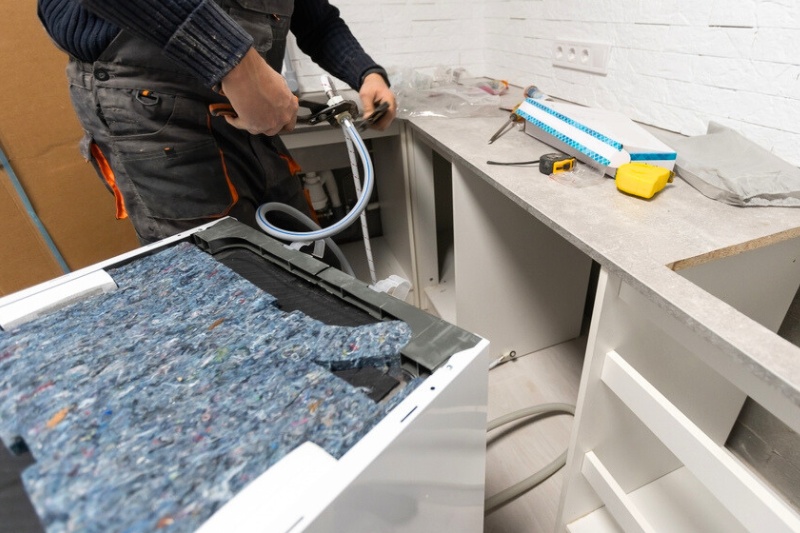
Having a dishwasher that heats its own water simplifies the installation process.
In short, you don’t need separate hot and cold water supplies going into your dishwasher; a cold water supply is ample. The dishwasher can heat the cold water to the desired temperature to clean the crockery.
In addition, not having to worry about a hot water supply means you can be a little more flexible with your kitchen layout.
Essentially, you don’t have to worry about fitting your dishwasher in a space where there’s hot water supplied or getting suitable inlets fitted because you can use the cold water system.
This is a nice feature because you don’t have to waste money on getting new plumbing points fitted.
4. To ensure control and consistent output
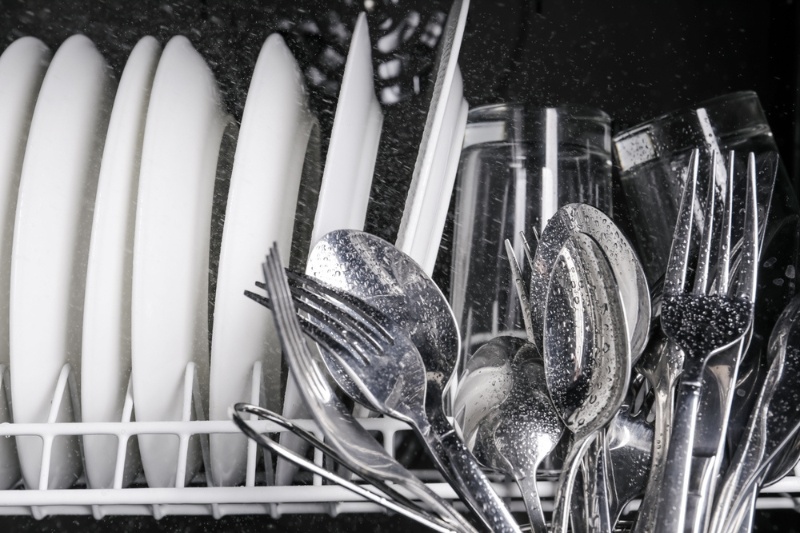
By heating its own water, a dishwasher can control and monitor the temperature inside the appliance, ensuring consistent cleaning.
Dishwashers come with a variety of cycles that you can choose from. Some can be long, others short; some are hot, and others are cooler.
By heating its own water, a dishwasher makes sure that each cycle is supplied with the correct water temperature. As noted earlier, this makes sure that every piece in the dishwasher is cleaned effectively.
5. Ensure detergent is optimally distributed
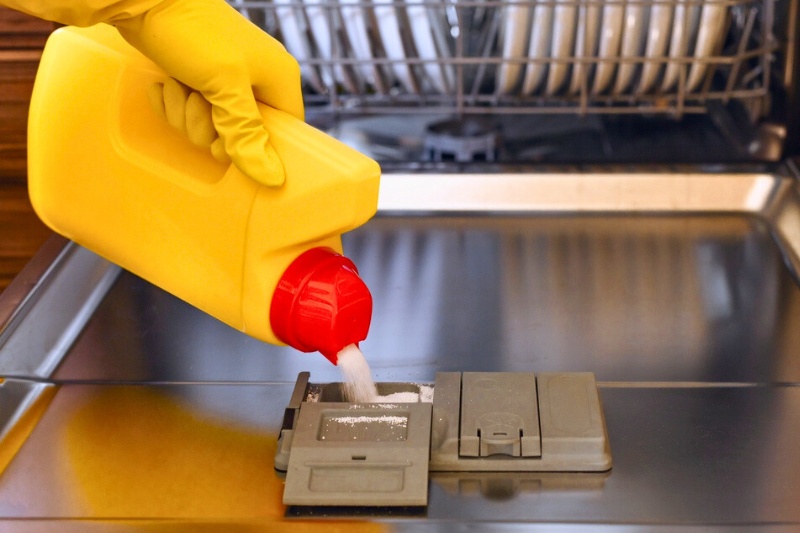
By controlling and heating the water, a dishwasher makes sure that the detergent you put into the machine is used effectively. Detergents need to be paired with a specific water temperature to work properly.
If the water is too cold, it won’t dissolve effectively. In contrast, the detergent’s cleaning power may diminish if the water is too hot.
The dishwasher knows all of this, so it makes sure that the water is at the right temperature so the detergent will work effectively.
6. Allowing for weather changes
Furthermore, having a dishwasher that heats its own water is handy because in the UK we have varying weather that can impact our water supplies.
Regulating water temperatures throughout the seasons can be challenging, especially in the winter or when an appliance is against a cold external wall.
By heating the water internally, a dishwasher makes sure that regardless of the temperature outside or what water comes through the pipes, it heats the water, performs consistently and provides the same high level of cleanliness all year round.
7. It’s the only way!
In many cases, the user manual that comes with your dishwasher will advise you to use a cold water supply over a hot water one. There’s usually a stress on the cold water supply because it’s normally cheaper (energy efficient) than supplying your dishwasher with hot water.
As mentioned earlier, when you pump hot water into the dishwasher, you’ve got to use additional energy to warm the water up, which means extra cost.
The machine can heat the water up inside it anyway, and it would likely be able to do it for a little cheaper because it’s been built with energy efficiency in mind.
Note: If you are going to use hot water, remember that this hot water will be drawn from other areas of the house. For example, if someone is in the shower and the dishwasher is switched on, they may notice a drop in flow rate or temperature because the hot water is being drawn elsewhere.
Can a Dishwasher Run Without Hot Water?
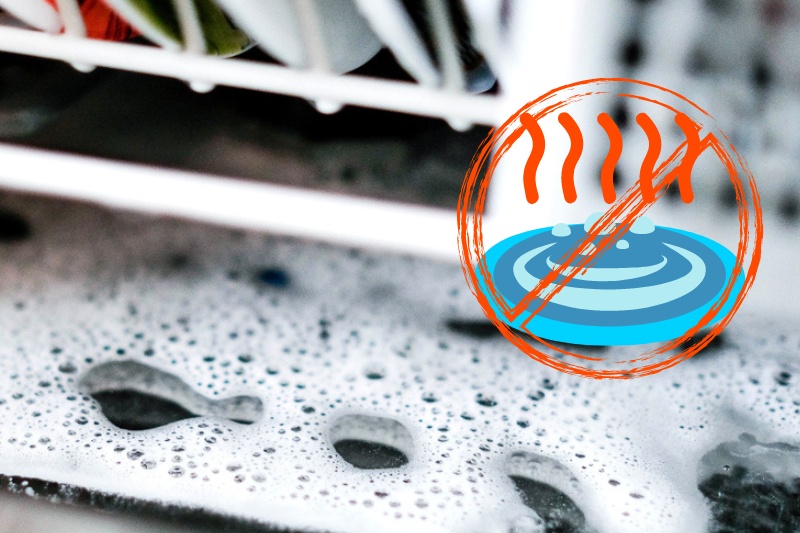
It is possible to run a dishwasher with cold water, but it is not advised to run a dishwasher in this way.
If your dishwasher is having trouble heating water, you should get the problem fixed as soon as you can. It’s most likely a faulty heating element, and you can repair it reasonably quickly.
The dishwasher will function and run through a cycle with cold water. But it won’t effectively clean the dishes because you need hot water to break down gunk, grease, and debris, as well as dissolve the detergent.
You can’t guarantee that the dishes will be clean by the end of the cycle. Moreover, the crockery will not be free from germs!
Can You Connect a Dishwasher to a Hot Water Supply?
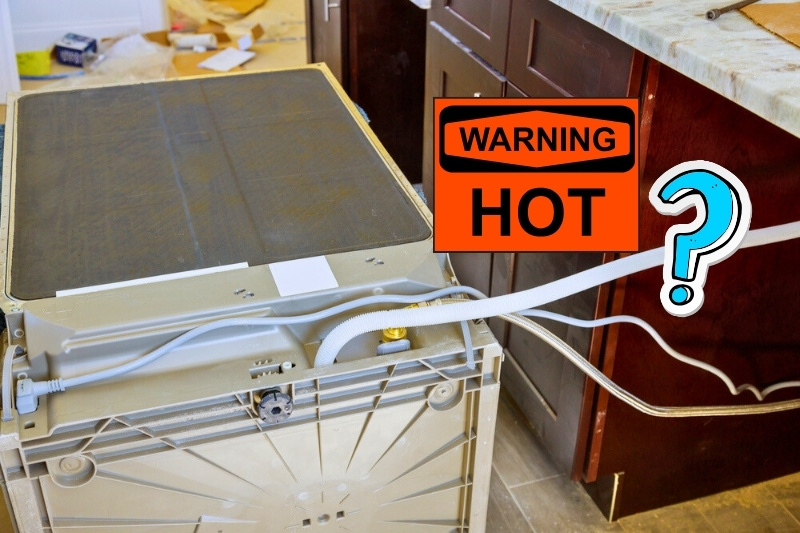
It is possible to hook some dishwashers up to a hot water supply, but you usually use a cold water supply in the UK.
Consider the following.
Benefits
- Time saving – No time wasted heating up water.
- Potentially energy efficient – If your home uses solar panels, you can use this energy instead. This can save some money in turn.
Drawbacks
- Risk of overheating – Some dishwashers can only handle cold water; if supplied with hot water, they can overheat and become damaged.
- Inconsistent water temperature – The fluctuating water temperature may lead to ineffective cleaning.
- Often less energy efficient – Depending on how your hot water is heated, it may cost you more to heat the water and supply it to the dishwasher.
If you are considering connecting your dishwasher to the hot water supply, consider the following:
- Ensure your dishwasher is compatible with a hot water supply before connecting it up. If you don’t follow the instructions in your user handbook, you could seriously damage your dishwasher and void your warranty in the process.
- Ensure your home’s heating systems work effectively and handle the extra workload.
- Ensure you comply with any rules and regulations.

Bethan has a passion for exploring, reading, cooking and gardening! When she’s not creating culinary delights for her family, she’s concocting potions to keep her house clean!
